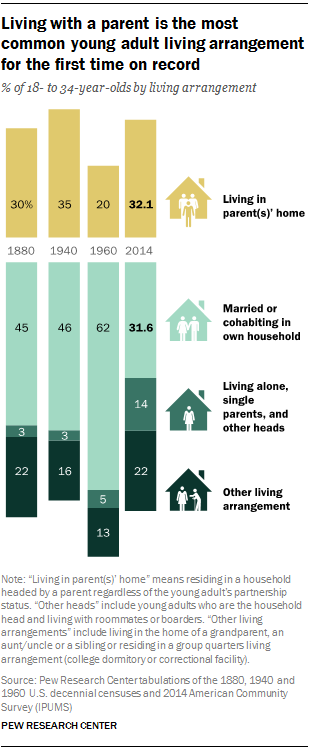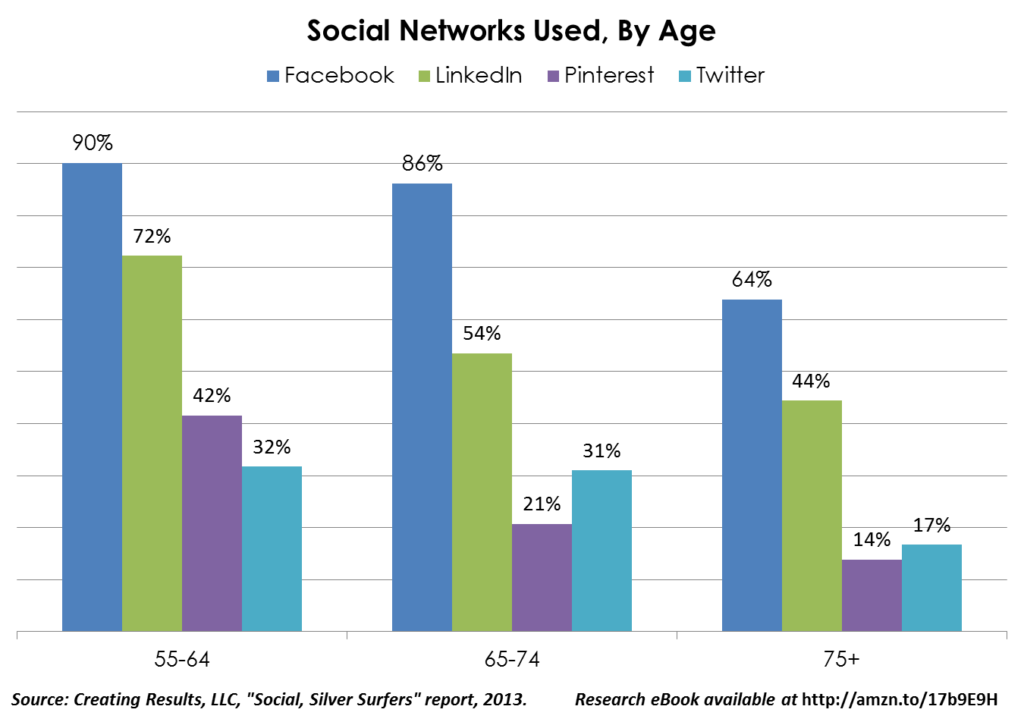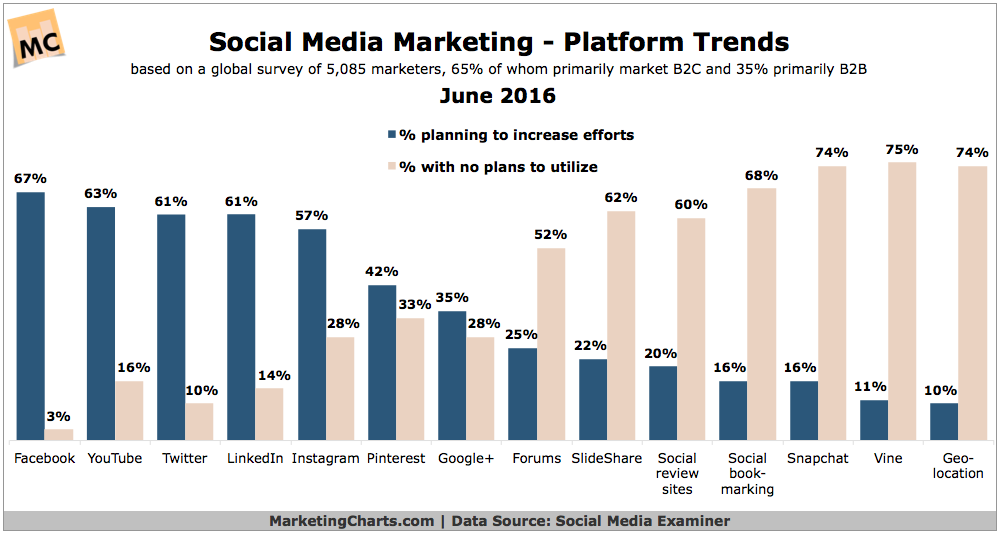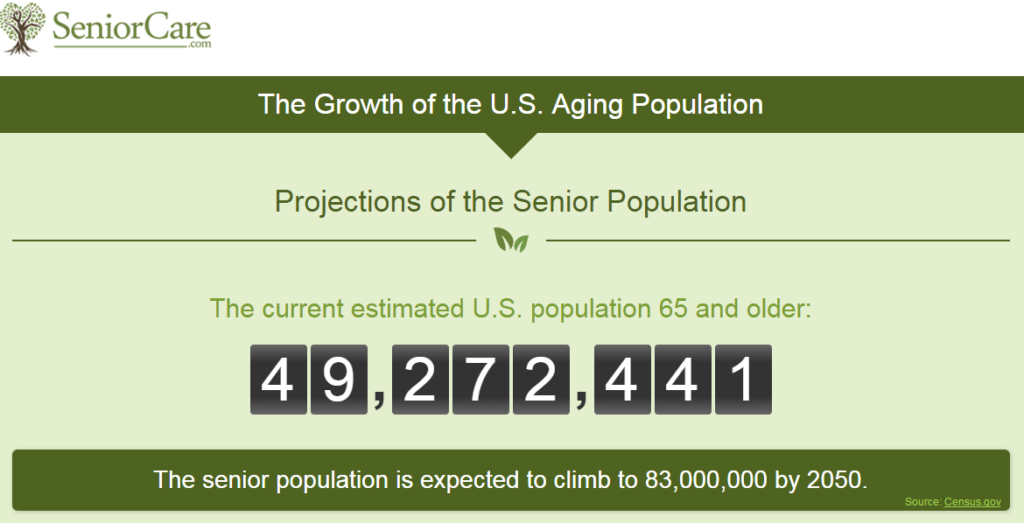Happy 5th of July!
Our Monday recap of top mature marketing links is, this week, a Tuesday recap thanks to a day out of the office celebrating America’s independence.
Sorry, there are no s’mores below, but you will find a few tasty insights to improve your communications.
MOST CLICKED
We often chuckle about the number of headlines focused on marketing to Millennials. (Almost as many as there were hyping the Baby Boomers turning 50 some years ago.)
If you are looking for Millennials, we can tell you where to find them:
They’re living with their parents.
The Pew Research Center reports that, for the first time in 130 years, more young Americans are living with their parents than with a spouse/partner.
“It’s worth noting that the overall share of young adults living with their parents was not at a record high in 2014. This arrangement peaked around 1940, when about 35% of the nation’s 18- to 34-year-olds lived with mom and/or dad (compared with 32% in 2014). What has changed, instead, is the relative share adopting different ways of living in early adulthood, with the decline of romantic coupling pushing living at home to the top of a much less uniform list of living arrangements.”
 Why?
Why?
- Particularly for men, a job market which, while improving, is still marked by declining employment and decreasing wages
- For younger women, delayed marriage
- For both genders, record-high student debt
- For all young people, there is greater ethnic diversity, which brings with it a wider variety of conventions — in many cultures it is more traditional to live a longer time with family/parents
CNBC’s John Schoen notes that housing market conditions play a part, as well. “The share of young adults living with their parents is higher in housing markets where rents and mortgages consumes a bigger share of the median household income,” writes Schoen.
What does this mean for those who are marketing to mature consumers?
- “Empty nests” likely aren’t, but wallets may be emptier than consumers (and businesses) may like
- The desires of Baby Boomers to take that “bucket list trip” may take a back seat to less complex and less expensive family adventures
- Older adults will put off planning for housing changes — how can they think of selling the homestead when Junior still needs that support and connection?
Read more about this trend:
Pew Research Center — http://pewrsr.ch/29ksG3L; CNBC — http://cnb.cx/29mrBqa; San Francisco Chronicle — http://bit.ly/29KQvz8
MOST SHARED
Senior Care has created a ticker showing the current (estimated) 65+ population in the United States. Click the image below to see, in just a few digits, why Creating Results’ focus for 20+ years has been driving leads from mature consumers.
MOST FRIGHTENING?
Creating Results regularly gets calls from prospects who want to know where and how to start using social media marketing. The answer has been, for many years, Facebook.
Why?
Facebook is not only the #1 social platform in the world, it’s the #1 platform for older adults.
From our 2013 Social, Silver Surfers research (2016 edition coming soon!):

Facebook is tops among marketers as well, whether mature marketing is their focus or not. No matter how much time or effort marketers are currently spending on this platform, Social Media Examiner found most professionals intend to increase those efforts:

Combine these two data points and Facebook’s most recent algorithm change is significant. In a nutshell, the social platform now will be downplaying the posts of businesses and prioritizing those of individuals.
Fewer eyes on your posts = less traffic from Facebook to your site.
Will this change the plans of those marketers?
As the New York Times reported:
“For years, Facebook has courted publishers of all sizes, asking them to depend more and more on the social media giant to expand their audiences. Now, Facebook has a new message for publishers: Tamp down your expectations.
Facebook said on Wednesday that it planned to make a series of changes to its news feed algorithm so that it will more favorably promote content posted by the friends and family of users.”
You’ll find the Times‘ article at http://nyti.ms/29hm6aR.
Mark Schaefer calls this an “epic flip-flop” by Facebook: http://bit.ly/29hlzW8.
Mark’s take on what he calls “the six scariest words in digital marketing” is worth a read. We’d love to hear your take!
Please share your thoughts below in the comments section.



